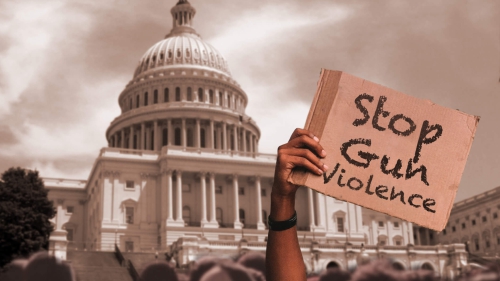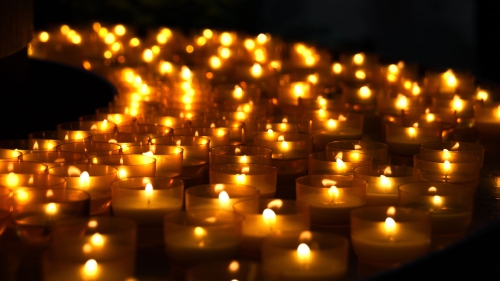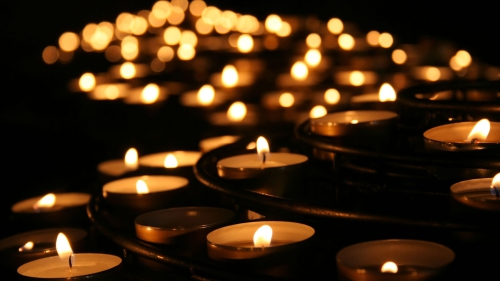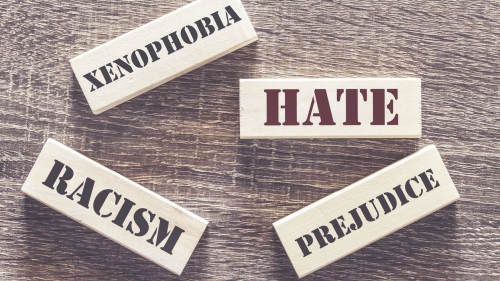Stop blaming the mentally ill for mass shootings.

The cities read like a list of battlefields: Aurora, Tucson, Charleston, Newtown, Orlando. Each city has been the site of a mass shooting — each at the front line of the nation’s long-running battle over the cause of such tragedies and what can be done to prevent them. It’s become a reflexive response to blame the violence on easy access to assault weapons by mentally ill loners. Conservative author and commentator Ann Coulter sums up the attitude: “Guns don’t kill people, the mentally ill do.”
It makes for a good soundbite, but the assumption doesn’t hold up under close scrutiny, according to criminal justice and psychiatric experts. “It makes sense that after a mass shooting, people look for answers to explain what happened, like mental illness and terrorism,” said Jonathan Metzl, a professor of sociology and psychiatry at Vanderbilt University in Nashville. “As we learn more about mass shootings, we learn that the stories are far more complicated.”
In the latest mass shooting, authorities are looking at multiple factors, from terrorism to the shooter’s state of mind.
Early Sunday, Omar Mateen shot up a nightclub in Orlando popular with the gay community, killing 50 and wounding 53, according to police. Investigators are looking into the background of Mateen, a 29-year-old security guard and U.S.-born son of Afghan immigrants.
Mateen called 911 from inside the nightclub and pledged loyalty to the Islamic State. Terrorism isn’t the only motive that has come up. The shooter’s father and others have suggested Mateen may have been motivated by hatred of gays.
Mateen’s ex-wife said he showed signs of “emotional instability, sickness… He was mentally unstable and mentally ill [and] obviously disturbed, deeply, and traumatized,” said Sitora Yusify, who spoke with reporters from her home near Boulder, Colo. The couple divorced in 2011.
Metzl pored through data and reports about guns and mental illness over the past 40 years for a study, “Mental Illness, Mass Shootings and the Politics of American Firearms,” published in 2015 the American Journal of Public Health.
His research showed that less than 5 percent of the 120,000 gun-related killings in the U.S. between 2001 and 2010 were committed by people diagnosed with mental illness.
“Even though many mass shooters suffered from symptoms of mental distress, that didn’t support the conclusion that mental illness caused them to act the way they did,” Metzl said. “Mass shootings are often very complicated.”
Other factors far more likely to be associated with shootings included an individual’s history of violence, Metzl said. Drinking or drug use at the time of an emotionally charged conflict and the presence of a firearm, especially in suicide cases, were also common factors, he said.
“There’s no mental illness diagnosis whose symptoms including attacking or killing someone,” he said.
On the other hand, Metzl found that people with mental illness were more likely to be victims of violence. “You’re more likely to be attacked by other people, more likely to be shot,” he said. “You’re odd. You’re a target.”
Studies in several cities and states have found that at least half of people shot and killed by police were having mental health problems, he said.
But Metzl understands why the public might see a connection between mental illness and gun violence, especially after highly publicized crimes.
“When you see shootings like those at Newtown, Conn., or Aurora, Colo., it’s hard to argue that mental illness didn’t play a role,” he said. But the shooter’s mental state is only one of several factors involved, he said.
Adam Lanza killed 20 first-graders, six adults and himself at Sandy Hook Elementary School in Newtown in 2012. He had been diagnosed with Asperger’s syndrome, a developmental disorder related to autism.
There is no direct link between Asperger’s and gun violence, Metzl said. Other factors in the crime included Lanza’s easy access to guns provided by his mother, a solitary lifestyle and family stress, he said.
In Aurora in 2012, James Holmes killed 12 people and injured 70 others inside a movie theater. His lawyers argued in court that he should be found not guilty by reason of insanity. An expert in schizophrenia testified for the defense that the shooting could be linked directly to Holmes’ mental illness. But two court-appointed psychiatrists who examined the shooter concluded he was mentally ill but capable of knowing his actions were wrong.
The jury rejected the claim of legal insanity and found Holmes guilty. He’s serving a life sentence with no chance of parole.
Holmes’ mental illness wasn’t incapacitating. “If you were truly out of your mind,” Metzl said, “you couldn’t plan and execute a mass shooting.”
“If you were truly out of your mind,” Metzl said, “you couldn’t plan and execute a mass shooting.”
Drawing conclusions from high-profile crimes is nearly impossible because of the small sample size, said Paul Appelbaum, director of Columbia University’s division of law, ethics and psychiatry.
The FBI defines mass murder as killing four or more people during an event. More often, these crimes are attributable to gangs, disgruntled workers or family disputes, he said.
“It’s loss of control by people who are extremely angry,” he said.
Appelbaum believes that efforts to link mental illness and violence “are in part a political strategy to turn attention away from more serious efforts to restrict access to the means of violence — which is guns.”
A strategy based only on keeping guns away from the mentally ill would be ineffective because many do not seek psychiatric help, said Appelbaum, who cited the case of Jared Loughner in Arizona.
In 2011, Loughner killed six people and severely wounded a congresswoman in Tucson. He had shown obvious signs of mental instability but had not seen a doctor. He legally bought a handgun weeks before and used it in the shooting.
Pete Blair, a Texas State University professor who trains law enforcement officers on responding to mass shootings, said it’s easy for people to say the mentally ill shouldn’t have guns. But how to do that gets complicated.
“What’s the process for screening people?” he asked. “Which mental health issues” get flagged for gun-buying background checks? “I just don’t know how you would do that.”
*****
Source: Dallas Morning News
Topics: Gun Control, Gun Violence, Mass Shootings, Violence
Views: 1138
Related Suggestions

















